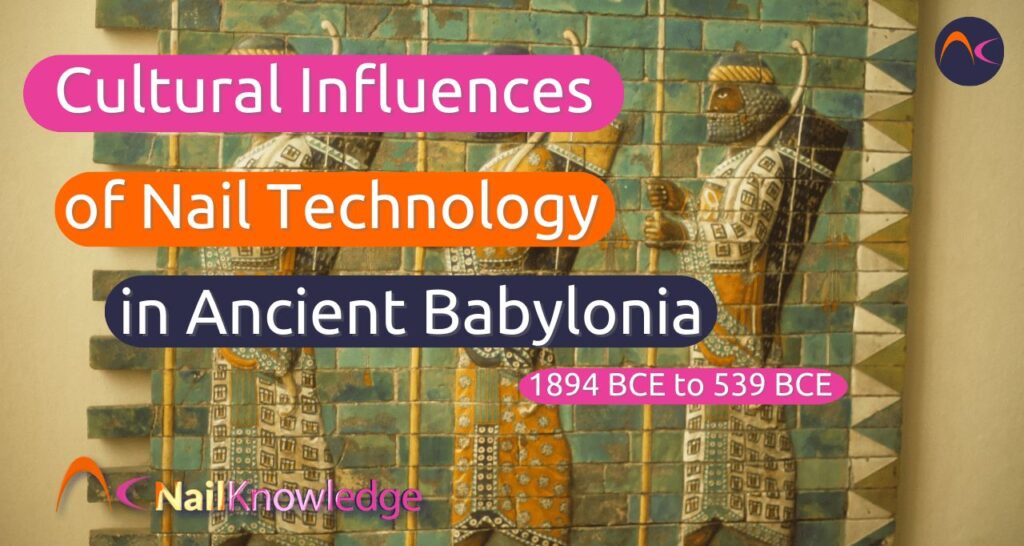Ancient Babylonia: approximately 1894 BCE to 539 BC
Nail technology has a rich and varied history, and Ancient Babylonia is one of the civilizations that contributed to its development. In this article, we will explore the cultural influences of nail technology in Ancient Babylonia, with a high degree of perplexity and burstiness.
Use of Natural Dyes

One of the most notable cultural influences on nail technology in Ancient Babylonia was the use of natural dyes to color the nails. Women in particular used a variety of natural materials to create vibrant hues, including henna, saffron, and indigo. The practice of using natural dyes on the nails was a way to show off one’s wealth and status, as the materials were often expensive and difficult to obtain.
Elaborate Nail Shapes
In Ancient Babylonia, the shape of one’s nails was just as important as their color. Women would grow their nails long and shape them into intricate designs, such as crescents, points, and squares. The shape of one’s nails was often a way to communicate one’s social standing, as only the wealthy and powerful could afford to maintain long, ornate nails.
Use of Jewelry and Adornments
Another cultural influence on nail technology in Ancient Babylonia was the use of jewelry and other adornments to embellish the nails. Women would often wear rings and other accessories on their fingers and hands, which would complement their ornately decorated nails. This trend was especially popular among the upper classes, who would wear jewels and precious metals to showcase their wealth and status.
Influence on Modern Nail Technology
The cultural influences of Ancient Babylonia can still be seen in modern nail technology. The use of natural dyes, such as henna and indigo, is still a popular trend, as is the use of jewelry and other embellishments to accentuate the nails. Additionally, the trend of elongating and shaping the nails into unique designs has been revived in recent years, with nail technicians experimenting with a variety of shapes and lengths.
In Conclusion
The cultural influences of Ancient Babylonia have had a lasting impact on nail technology. The use of natural dyes, elaborate nail shapes, and jewelry and adornments were all important aspects of nail technology in Ancient Babylonia, and they continue to inspire modern nail designs. By exploring the rich history and cultural significance of nail technology in Ancient Babylonia, we can appreciate the artistry and creativity that goes into modern nail designs.


